5-Days Certificate Programme on Strategic Negotiations - Batch-I (August 2024)
.jpg)
Description
This intensive certificate program is meticulously designed to provide participants with a comprehensive understanding of modern diplomacy, strategic negotiation, and foreign policy formulation, with a specific focus on India's experiences and objectives in the immediate and extended neighbourhood. Drawing from India's rich diplomatic history and current geopolitical challenges, the curriculum offers a unique blend of theoretical knowledge and practical insights. Participants will engage with a diverse range of topics, including military diplomacy, crisis negotiation, territorial dispute resolution, and strategic partnerships in the neighbourhood. The program features distinguished speakers, including former ambassadors, military leaders, and renowned academics, who bring their wealth of experience to the classroom. Through a combination of lectures, case studies, and interactive sessions, participants will gain a nuanced understanding of India's approach to international relations and develop the skills necessary to navigate the complex landscape of diplomacy.
Purpose of the program:
The primary purpose of this program is to cultivate a new generation of diplomatic leaders who can effectively represent and advance India's interests on the global stage. In an era of rapid geopolitical shifts and emerging challenges, there is a critical need for professionals who can navigate complex international scenarios with skill and strategic foresight. This program aims to bridge the gap between academic knowledge and real-world diplomatic practice by providing participants with a deep understanding of India's foreign policy objectives and the strategic thinking behind its diplomatic engagements. By examining case studies of India's past negotiations, crisis responses, and ongoing diplomatic challenges, the program seeks to equip participants with the analytical tools and practical skills needed to address future geopolitical issues. Furthermore, the course is designed to foster a holistic understanding of diplomacy, emphasizing the interconnections between domestic policy, regional dynamics, and global strategic interests.
1. Analyze complex geopolitical situations from multiple perspectives and develop comprehensive strategies that align with India's national interests, demonstrating an understanding of the intricate relationships between domestic and foreign policy globally and in the neighbourhood.
2. Apply advanced negotiation and conflict resolution techniques in various diplomatic scenarios, drawing from India's experiences in managing regional tensions, territorial disputes, and international crises.
3. Evaluate and formulate strategies for India's key bilateral and multilateral relationships, with a particular focus on navigating the evolving dynamics of strategic partnerships in a changing global order.
4. Demonstrate leadership in diplomatic engagement by crafting persuasive communications, building consensus among diverse stakeholders, and effectively representing India's positions in international forums.
5. Anticipate emerging geopolitical challenges and opportunities, and develop innovative diplomatic approaches that leverage India's strengths in areas such as economic cooperation, cultural diplomacy, and regional leadership.
Note: The programme will be conducted in online mode & E-Certificate will be provided.
What you'll learn
Diplomacy and leadership
Navigating Complex Territorial Disputes
Navigating India's Himalayan Diplomacy
Military Diplomacy: India's Strategic Approach in a Complex Geopolitical Landscape
Negotiating to resolve a crisis
Evolving Dynamics of the India-Russia Strategic Partnership
Requirements
Course Content
Semester with subjects
 No Semester Founds.
No Semester Founds.
Experts
Amb. Sujan Chinoy is the Director General of the Manohar Parrikar Institute for Defence Studies and Analyses (MP-IDSA), New Delhi since 2019. A career diplomat from 1981-2018, he held several important diplomatic assignments, including as Ambassador to Japan. He is a specialist on China, East Asia and politico-military and security issues. He anchored as a team leader the CBMs/peace and tranquillity issues related to the India-China boundary dispute between 1996 and 2000. On deputation to the National Security Council Secretariat (NSCS) from 2008-2012, his expertise covered external and internal security issues including the extended neighbourhood of the Indo-Pacific. He has served as Consul General in Shanghai and Sydney and has extensive experience in trade, investment and economic issues. He was the Chair of the Think20 engagement group for India’s G20 Presidency. He regularly contributes to newspapers and journals, besides lecturing in India and overseas.
Lt Gen Vinod Khandare was Military Advisor in the National Security Council Secretariat under the Prime Minister’s Office (2018-2021). He was Director General, Defense Intelligence Agency and Deputy Chief, Integrated Defence Staff for Intelligence (2015-2018). Lt Gen Khandare served in the Indian Army for nearly four decades. Serving in Infantry, he excelled in challenging terrain, sectors, operational roles in Siachen, Jammu and Kashmir, Sikkim and North East region. For his exemplary service and commitment, Lt Gen Khandare has been awarded the Sena Medal, Ati Vishisht Seva Medal, Chief of Army Staff Commendation Card and the Param Vishisht Seva Medal.
Shri Mathur has served in Indian Embassies in Belgium and Pakistan. During his assignments as Secretary to the Govt. of India, his special area of interest had been study of issues affecting national security in India’s neighborhood including Bangladesh, Nepal, Pakistan, Sri Lanka, Myanmar, Maldives etc. with a view to providing inputs for shaping a coherent Indian security strategy towards these countries. Served in Ministry of Home Affairs and Cabinet Secretariat for approximately 30 years and retired as Secretary in the Prime Minister’s Office in the year 2012. He also served in United Nations as Head of the UN Mission in North Kosov (2012-2014). Currently he is a Member of the National Security Advisory Board.
Vivek Mishra is a Fellow with ORF’s Strategic Studies Programme. His research interests include America in the Indian Ocean and Indo-Pacific and Asia-Pacific regions, particularly the role of the US in security in South Asia, Indo-US defence relations, and the Indian defence sector. Dr. Mishra has been a Fulbright-Nehru Doctoral Research Scholar at the Saltzman Institute of War & Peace, School of International Public Affairs, Columbia University. He was awarded a pre-doctoral fellowship by the Osmania University Centre for International Programmes to study US-India-China relations in the Indian Ocean. He has published two co-authored books and one co-edited volume, 15 peer-reviewed journal articles, and 14 book chapter. Dr. Mishra’s articles have appeared in The Indian Express, Deccan Herald, The Pioneer, The Diplomat, The National Interest and Huffington Post. He is currently working on a book exploring the India’s foreign policy amidst the COVID-19 pandemic.
Dr. Nihar R. Nayak is Research Fellow with MP-IDSA, New Delhi. His areas of expertise are: political transition in the eastern Himalayan region, non-traditional security, soft power diplomacy, left wing extremism, and cooperative security in South Asia. Dr. Nayak has a Ph.D in International Politics from Jawaharlal Nehru University, New Delhi. He was Visiting Fellow to the Peace Research Institute Oslo in June 2006 and July 2007. He did a special course on Peace Research at the International Summer School of Oslo University in 2007. He has been Visiting Faculty at the Centre for the Study of Nepal, Faculty of Social Sciences, Banaras Hindu University since 2011. He was Guest Faculty at the Lal Bahadur Shastri National Academy of Administration (LBSNAA), Mussoorie from 2006 to 2011. He has both national and international publications to his credit including the book Strategic Himalayas: Republican Nepal and External Powers. Dr. Nayak’s current research project is “Impact of Climate Change in the Himalayan Region: Security Implications for India”.
Prof Archana Upadhaya is professor and chairperson of the Centre for Russian and Central Asian Studies at JNU.
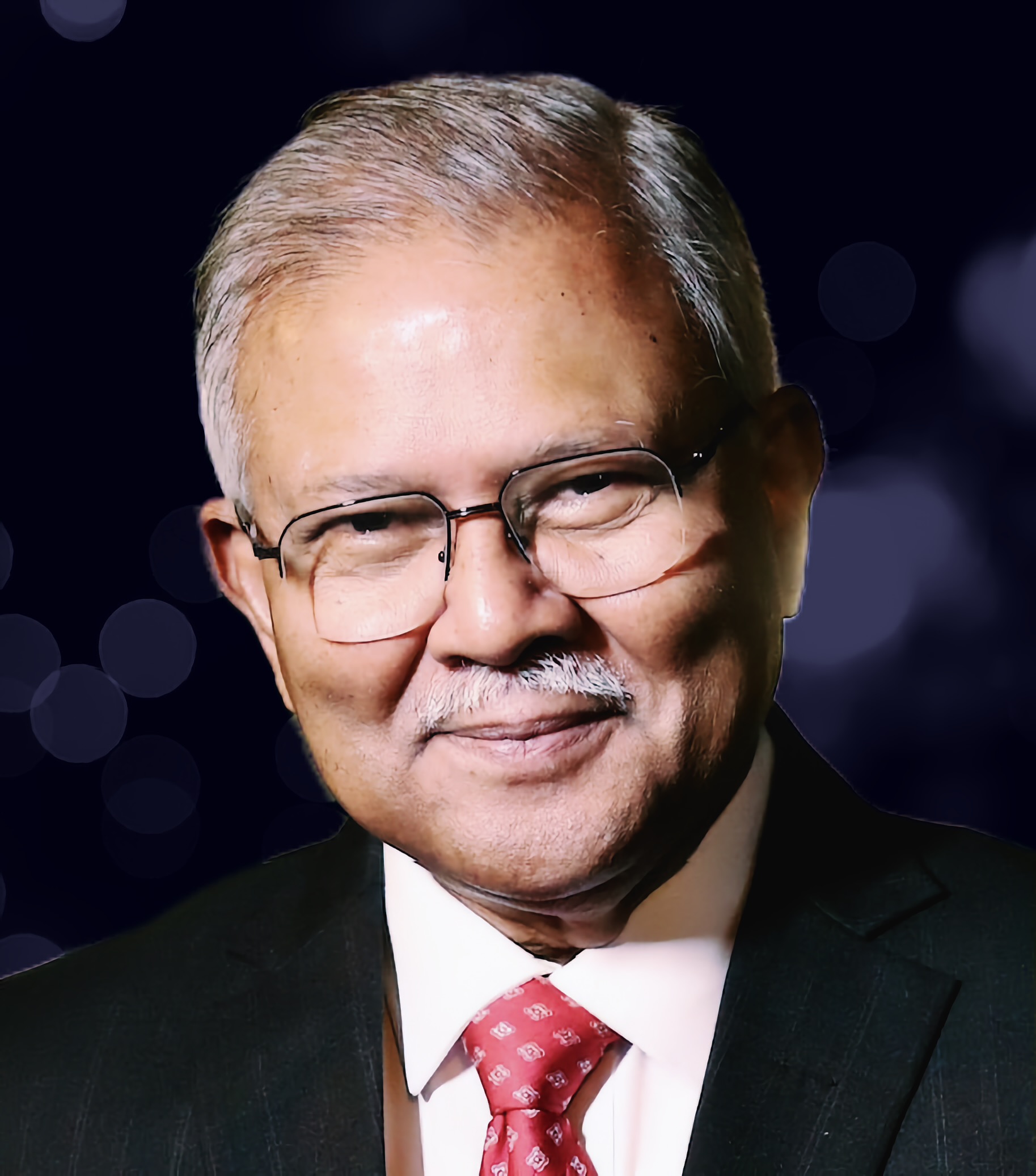
Ashok K. Kantha
Honorary Fellow and former Director (2017-22), Institute of Chinese Studies, New Delhi; Distinguished Fellow, Vivekananda International Foundation, New Delhi; Chair of the Core Group on China of the Confederation of Indian Industry; formerly Secretary (East), MEA and Ambassador/High Commissioner of India to China, Sri Lanka and Malaysia
Mr Ashok K. Kantha is an Honorary Fellow and former Director (2017-22) of the Institute of Chinese Studies, New Delhi; a Distinguished Fellow at Vivekananda International Foundation, New Delhi; and Chair of the Core Group on China of the Confederation of Indian Industry. A career diplomat, Kantha was Ambassador of India to China until January 2016. Prior to this, he was Secretary (East) at Ministry of External Affairs (MEA) His previous assignments include High Commissioner to Sri Lanka, High Commissioner to Malaysia, Joint Secretary (East Asia), MEA, Consul General in Hong Kong, Deputy Chief of Mission in Nepal, Director (China), MEA, and Director (Iran, Pakistan, Afghanistan), MEA. Earlier, Kantha served in different capacities at Indian Missions in Singapore, China and the USA, and at headquarters in New Delhi. In his diplomatic career spanning over 38 years, Kantha specialised in India’s neighbourhood and extended neighbourhood with a particular focus on China and South Asia. He has an advanced certificate in Chinese language from National University of Singapore.
Amb. Anil Trigunayat is a member of the Indian Foreign Service. He has served in the Indian Missions in Cote d’Ivoire, Bangladesh, Mongolia, USA, Russia, Sweden and Nigeria, Libya and Jordan. In the Ministry of External Affairs he has worked in the Economic, West Asia and North Africa and Consular Divisions. He also served as Director General/Joint Secretary for the Gulf & Haj Divisions in the Ministry of External Affairs, New Delhi. Thereafter, Mr. Trigunayat worked as Deputy Chief of Mission in the rank of Ambassador in the Embassy of India, Moscow Prior to his superannuation in May 2016, he served as Ambassador of India to Jordan and Libya and High Commissioner to Malta (June 2012 – May 2016). He is a post Graduate in Physics from the Agra/Kumaon University and also studied Russian History, Culture and Language at the Jawaharlal Nehru University, New Delhi. As a visiting fellow he also conducted research work on “WTO and Regional Trading Blocs” at the Oxford University. He is a member of the All India Management Association/Delhi Management Association as well as that of Oxford and Cambridge Society of India and the Association of Indian Diplomats (former Ambassadors). He is also the Honorary Member of the International Trade Council, Brussels.
Dr Hina Pandey is a research analyst, writes primarily on nuclear issues – non-proliferation, energy politics, strategy & security. She has previously worked with the Centre for Air Power Studies (CAPS), New Delhi as an Associate Fellow and was a former Visiting Fellow with the Stimson Centre. Some of her work is published in – Diplomat, Japan Forward, South Asian Voices, Nuclear Asia, Pakistan Politico, IPCS and KIIPS. She holds a doctorate from the American Studies Programme, JNU India.
Passionate writer on National Security related issues, Brig Hemant Mahajan YSM (Retd) is M Sc, M Phil in Defence Studies. He joined IMA Dehradun in July 1973 and passed out as a Commissioned Officer on 15 June 1975. He was commissioned into 7 MARATHA LIGHT INFANTRY. He has served extensively in Counter Insurgency Operations in Insurgency and Terrorist prone areas of Jammu & Kashmir, Punjab and North East and has taken part in all important operations undertaken by the Army since 1975. Brig Hemant Mahajan served in Jammu & Kashmir, in the deserts of Rajasthan, in Super High Altitude areas of Kargil and Leh, forward areas of Arunachal Pradesh. He was deployed in Punjab in ‘Operation Avert’. He was also involved in maintaining peace post ‘Operation Bluestar’ days in Punjab in the worst affected district of Gurdaspur, Taran Taran and Amritsar.He served in the areas of Darjeeling, Kurseong, Siliguri and Sikkim. He commanded his battalion 7 MARATHA LIGHT INFANTRY in Operation Rakshak in the most difficult areas of Poonch and Rajouri during the times of highest militancy. His unit was responsible for stopping terrorists from Pakistan into Jammu and Kashmir. His unit was awarded Unit Citation, 18 gallantry awards including YSM (gallantry) for the officer.
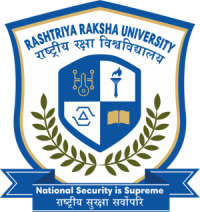
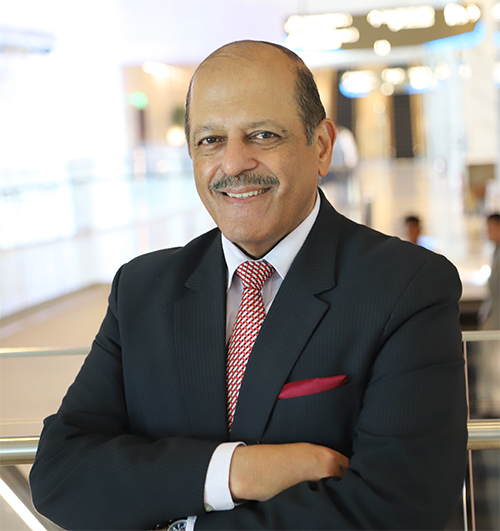
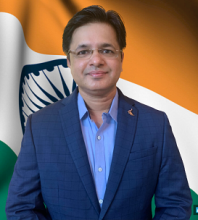
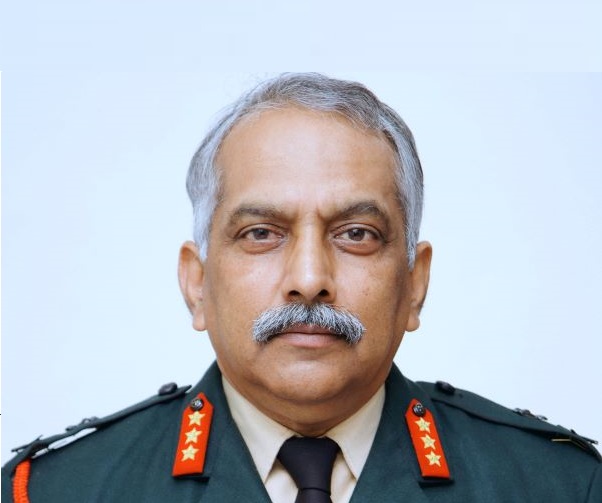
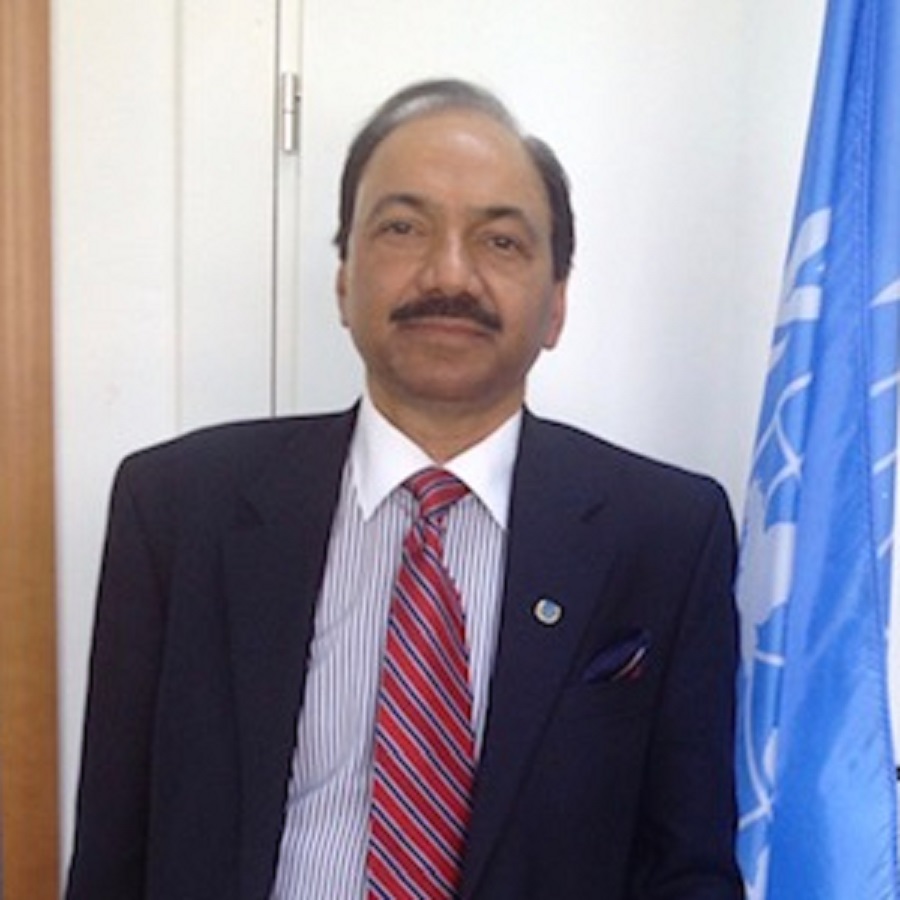
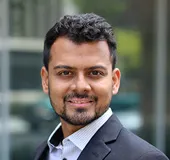
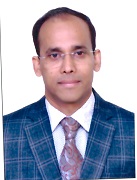
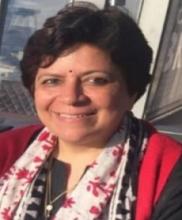
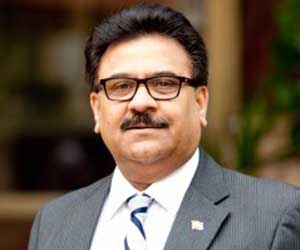

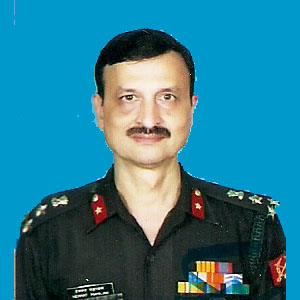
Recent Reviews